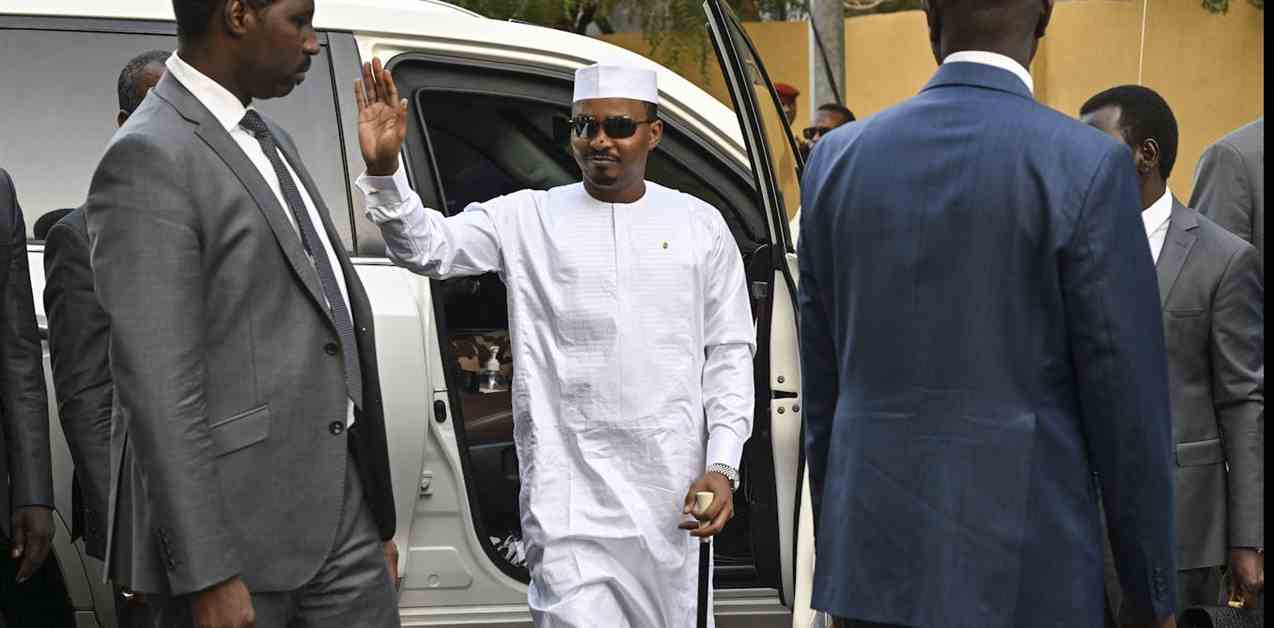Chad: Mahamat Déby confirms continuity of authoritarian regime after electoral victory
The official results of the Chadian presidential election in May 2024 have confirmed the long-term consolidation of power by Mahamat Déby. He came to power after the sudden death of his father, then President Idriss Déby Itno, in April 2021. Chadians are bracing for a new cycle of authoritarian rule. The West, particularly France and the United States, fear losing their last ally in the region.
The election on May 6, 2024, marked the end of a three-year transition period after Mahamat Déby took power. The Constitutional Council allowed ten candidates to run in the election. The main candidates were the transitional president, Mahamat Déby, and his Prime Minister Succès Masra, whom he had appointed. Masra, a fierce opponent first against the elder Déby and then the son, returned to Chad in October 2023 after a year in exile. Déby appointed him as Prime Minister in January 2024.
On May 9, the electoral authorities released the provisional results. Déby received 61.5% of the votes. Masra had 18.53%, and former Prime Minister Albert Pahimi Padacké was credited with 16.91%. The seven other candidates each received less than 1%.
The Constitutional Council confirmed the preliminary results on May 16. On May 23, Mahamat Déby was inaugurated as President for a five-year term. Masra resigned from his position as Prime Minister and did not attend the ceremony. On the same day, Mahamat Déby appointed Chad’s ambassador to China and former Director-General of State Protocol at the presidency, Allamaye Halina, as Prime Minister.
In my research on democratization in sub-Saharan Africa, I have closely followed Chadian politics for many years. I have observed that Mahamat Déby has ruthlessly used all means at his disposal to solidify his legitimacy as the elected president. Therefore, I would say that the autocratic system Chad experienced for 30 years under the late Idriss Déby’s rule will continue under his son. He resorted to violent oppression and intimidation during the transition and ensured the election was not transparent. He appointed a loyal Prime Minister and cabinet.
Violent oppression and intimidation have been prevalent in Chad, with the use of force to suppress resistance and intimidate the population. Mahamat Déby took advantage of the transition period to strengthen the security sector and establish loyal security forces. Several incidents showed that his use of force exceeded that of his father. The execution of opposition leader Yaya Dillo on February 28, 2024, further silenced the opposition.
The election was marred by problematic issues, including the appointment of electoral authorities by Mahamat Déby, changes to electoral laws, and restrictions on opposition party observers. Despite regional organizations declaring the election free and fair, there were reports of electoral fraud and violations.
The consolidation of power by Mahamat Déby has seen little change in his cabinet, with key supporters from the transition period retained. The role of the West, particularly France and the United States, in supporting Mahamat Déby’s regime is influenced by strategic interests in the region.
Overall, Mahamat Déby’s victory signals a continuation of authoritarian rule in Chad, raising concerns about the country’s democratic future.
**Biography:**
Mahamat Déby, the current President of Chad, succeeded his father Idriss Déby after his sudden death in 2021. Born in 1983, Mahamat studied at the Military Academy of Aix-en-Provence in France. He has been involved in Chadian politics for several years and has faced criticism for maintaining an authoritarian regime. His rise to power has been marked by violent suppression of opposition voices and electoral irregularities. As he consolidates his grip on power, the future of democracy in Chad remains uncertain.

